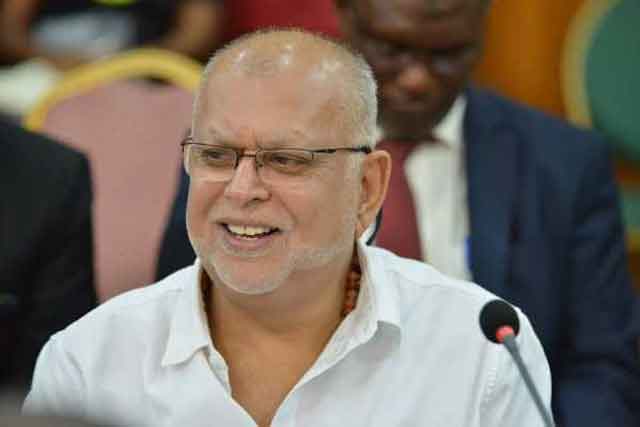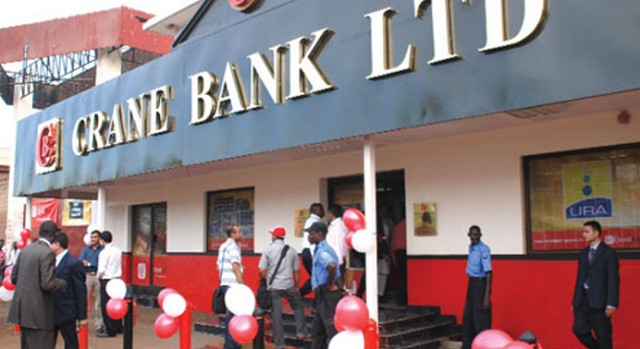The controversy between Crane Bank and Bank of Uganda seems to be coming to an end after businessman Sudhir Ruparelia secured an injunction against the Bank of Uganda’s move to place Crane Bank (in receivership) under liquidation.
The court also barred the Central Bank from continuing with the liquidation process against Crane Bank and return the status quo of Crane Bank to what it was before the main appeal, in which the Bank asked the court to block Sudhir from claiming, taking control, repossessing or in any way interfering with the management of the bank.
In September 2021, the Bank of Uganda announced its intention to withdraw this appeal and committed to paying Ruparelia and co-respondent, Meera Investments, court costs. Earlier in August, the Supreme Court had dismissed an application by the Bank of Uganda to substitute Crane Bank (In Receivership) with Crane Bank (In Liquidation) in their appeal.
The ruling was based on the fact that the status of Crane Bank’s receivership still stood until the court ruled otherwise, and therefore could not be under liquidation. “The attempt at circumvention of the decision of the Court of Appeal by altering the status of the 1st respondent from Crane Bank in receivership to Crane Bank in liquidation, was in our view, aimed at preventing the course of justice before this court and the same amounted to contempt,” ruled the justices.
Under receivership, the new manager, in this case, BoU, takes over the management of the company in question and receives all revenues due, to pay any outstanding obligations. Liquidation is the last step in the winding up of the company.
Ruparelia has thus succeeded in preventing the liquidation of Crane Bank, which was poised to follow the way of those gone before it, including the International Credit Bank, Teefe Bank, Greenland Bank, National Bank of Commerce and Global Trust Bank.

In all cases, the regulator argued that the entities were being mismanaged, had more liabilities than assets and put the deposits at risk. The bid to withdraw the main appeal, which is most likely to succeed, means the BoU no longer has any case against Crane Bank.
Crane Bank’s blocked liquidation, therefore means that Ruparelia and his Meera Enterprises retain the assets (and liabilities, if any) that belonged to them. The group will also have the right to start a process to recover the assets that BoU sold to DFCU.
“All that the Bank of Uganda can do now is to prepare to give accountability to Ruparelia, of the assets that are sold, how they were sold, and where,” says lawyer and legislator Abdul Katuntu, who chaired the Committee on Statutory Authorities and State Enterprises (COSASE) which probed the sale and closure of commercial banks.
But he also adds, the Bank of Uganda will find it hard because a lot of due procedures were skipped in the process. For example, he says there is no record to show that Edward Katimbo Mugwanya, who had been appointed Statutory Manager when BOU seized Crane Bank, handed over the assets entrusted to him to DFCU.
During the probe, Katimbo Mugwanya said that he was at his private farm when he received news that Crane Bank had been handed over to DFCU. BoU therefore has a duty to explain the assets, including the more than 480 billion Shillings that it said it gave to Katimbo to try to revive Crane Bank.
Apart from what the BoU is likely to pay Ruparelia in court costs and possible compensations, the court ruling and the withdrawal of the main appeal by BoU will set the shareholders of the other closed banks thinking.
While some banks unsuccessfully challenged the BoU decisions against their liquidations or sale, this new development will most likely require the Bank of Uganda to account for the shareholders. One benefit from all these proceedings is, it will be harder for the regulator to seize and sell or wind up a commercial bank in future under similar circumstances.
“There will also be restructuring at the BoU, where the Governor is the Chief Executive Officer, as well as the Chairman of the Board of Governors, which is wrong,” he says. In neighbouring Kenya, the recent amendment to the laws created the post of the Chairperson Board of Governors separate from the Bank Governor. The Governor is assisted by two deputies.
If you would like your article/opinion to be published on Uganda’s most authoritative news platform, send your submission on: [email protected]. You can also follow DailyExpress on WhatsApp and on Twitter (X) for realtime updates.



